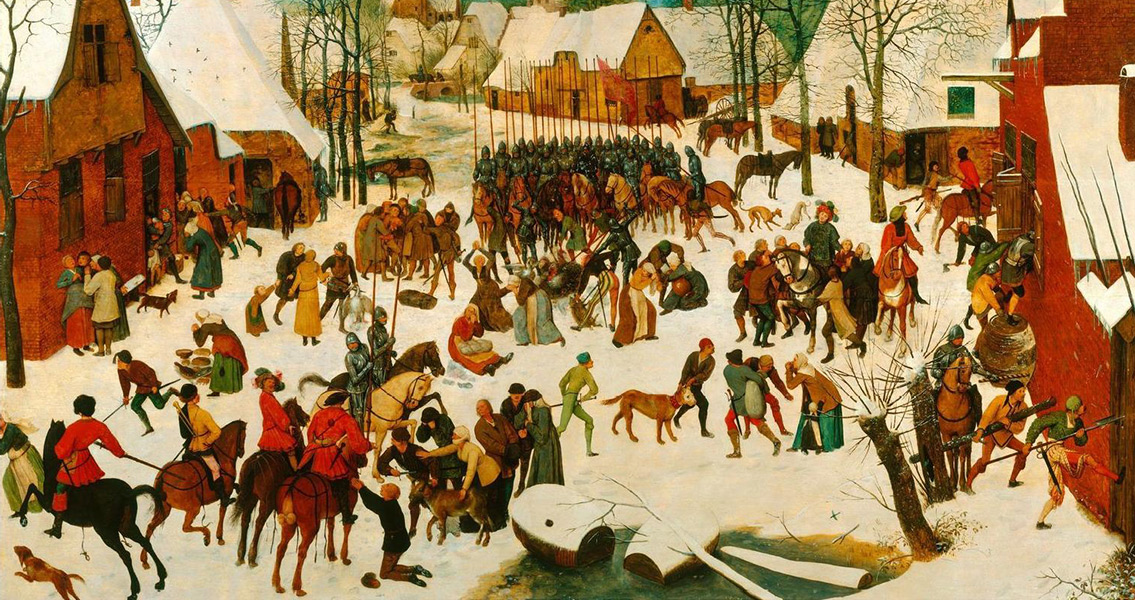<![CDATA[The darkest, most disturbing part of the Nativity Story comes shortly after the birth of Christ, with Herod's Massacre of the Innocents. The Gospel of Matthew paints the King of Judea as a vicious, brutal tyrant who ordered the killing of children in a desperate attempt to preserve his own power and position. We know that King Herod was a real historical figure, but is the Biblical portrayal of him accurate? Herod was born in Southern Palestine in 73 BCE. He was of Arab origin but a practicing Jew, his connection with the Romans initially coming through a military alliance. Herod's father, Antipater, was an influential figure in the region around what is today Israel. He provided assistance to the Roman invasion of Palestine in 63 BCE, forging a connection which would benefit his whole family. In 47 BCE Julius Caesar conferred Roman citizenship on Antipater and his children. Herod became the governor of Galilee, and six years later Mark Antony made him tetrarch of the area. In 40 BCE the Parthians invaded Palestine, and Herod and his family were forced to retreat to Rome. Proving just how valuable he had become, Herod was nominated the King of Judea by the Roman Senate, and assigned a massive army to retake the kingdom. Three years later he had completed his mission. He would remain King of Judea for the next 32 years. The Biblical story claims that close to the end of Herod's reign soothsayers had predicted that a new 'king of the Jews' was to be born in Bethlehem, one who would threaten his power. Herod heard from the Magi (the Three Wise Men) that an astrological sign (the Star of Bethlehem) pointed to the location of the child's birth. He ordered them to return to him with information about the child's location, but after bestowing their gifts on the new born they decided to ignore Herod's order, returning home via a different route. According to the Gospel of Matthew, an infuriated, fearful Herod sent his soldiers to the streets of Bethlehem, their orders to kill any child under the age of two years old. Mary, Joseph and Jesus managed to escape the Massacre of the Innocents, while the sickly Herod would die shortly after. Whether the Massacre of the Innocents actually took place is a highly contentious issue. It is not described in any of the other Gospels, and the depiction of it provided in Matthew is very brief - just a single verse. There is no conclusive historical evidence for it, and perhaps most damningly, it is not mentioned in the writings of Flavius Josephus, one of the main primary sources available for the life of Herod. Others argue that Josephus didn't mention it simply because the population of Bethlehem was so low. At the time a small village, the number of children actually killed might not have seemed worthy of recording. With it impossible to determine whether the Massacre of the Innocents actually took place, the question then becomes whether Herod was really the tyrant he has become in popular memory. It is here that the true complexities of his character are revealed. In many ways Herod's reign was hugely successful. A formidable military leader, as well as retaking Palestine from the Parthians he expanded the territory he governed into parts of modern day Jordan, Lebanon and Syria. The greatest testaments to his rule however, are architectural. He oversaw the construction of temples, aqueducts, fortresses, ampitheatres and entire cities. A host of architectural innovations are attributed to him, while the remains of buildings from his rule still impress to this day. In the later years of his life Herod became increasingly paranoid and cruel. He had sided with Mark Antony against Octavian during the Roman civil war, and lost. Although Herod was allowed to keep his position as King of Judea, his relationship with the Roman Empire had deteriorated. He became convinced that his own wife, Mariamne, was plotting against him, and he eventually had her, her two sons, her brother, her grandfather, and her mother all killed. As his mental and physical health deteriorated his rule became more tumultuous, with the King of Judea having to deal with a revolt, and growing hostilities with his kingdom's neighbours: the Nabataeans. On a personal level he seemed unable to trust anyone, altering his will three times to disinherit various members of his family, and ultimately disowning and then executing his first born son. The Massacre of the Innocents may have been exaggerated or fabricated, but the details of Herod's later years show where Matthew likely got the inspiration for it - the depiction in the Gospel very much fitting Herod's real life character in his later years. In popular culture Herod is often remembered as a vindictive tyrant, an image undoubtedly fostered by the Biblical story of the Massacre of the Innocents. It's an image that might have some truth, but it fails to capture the true complexity of Herod's life and reign. ]]>
Herod: City Builder and Child Killer
